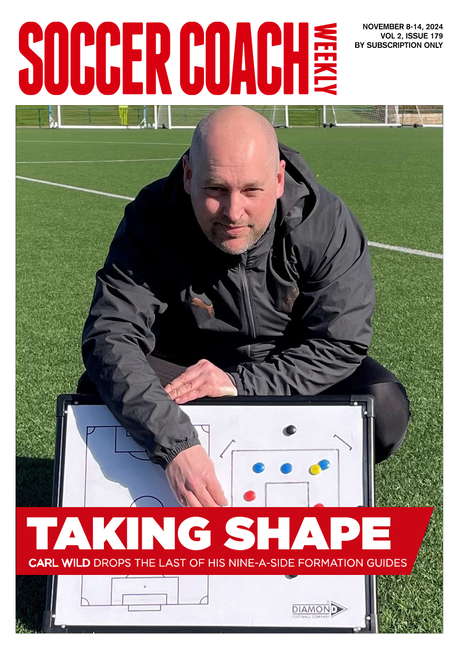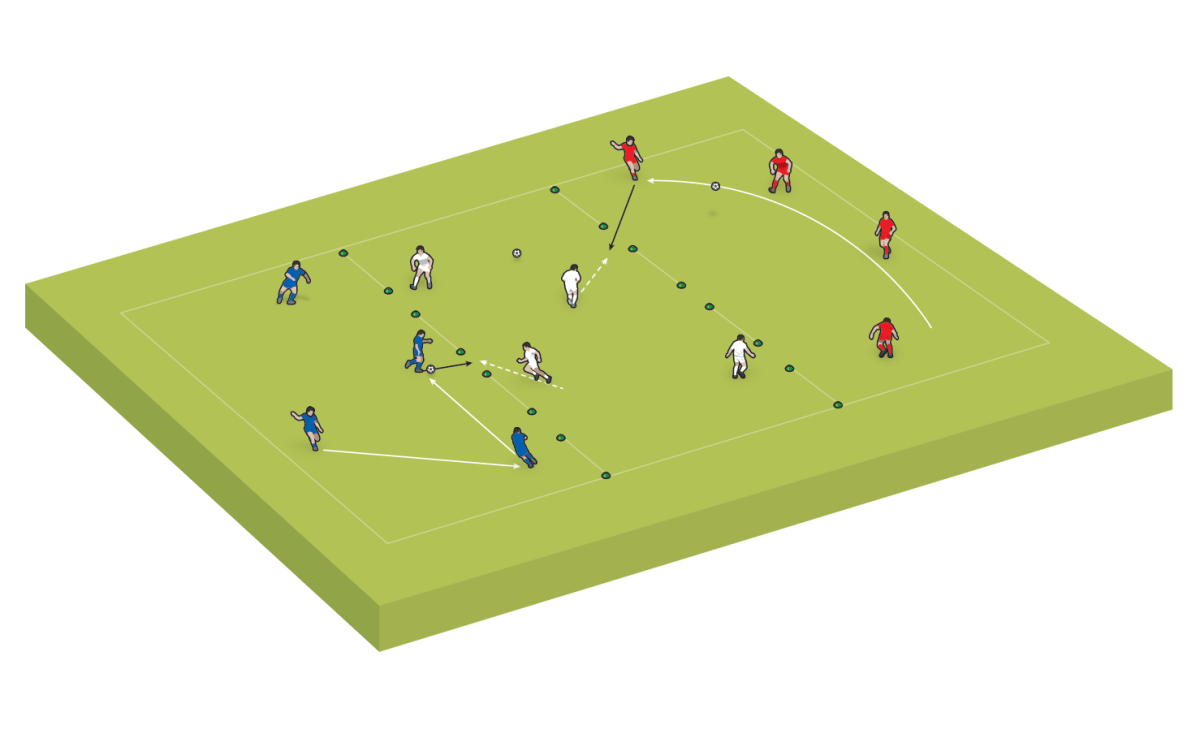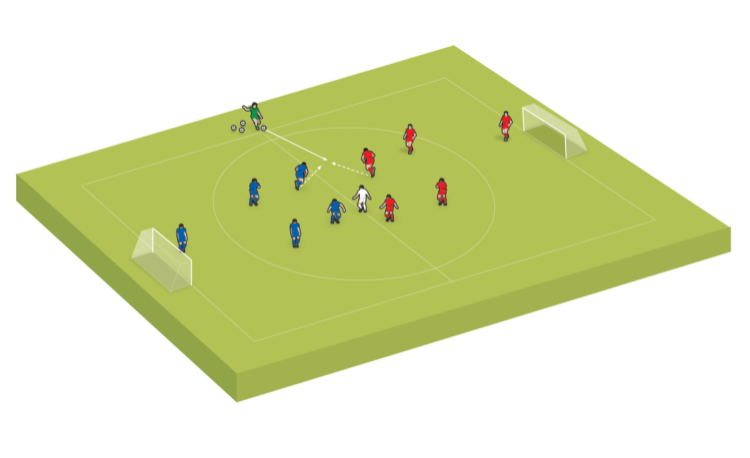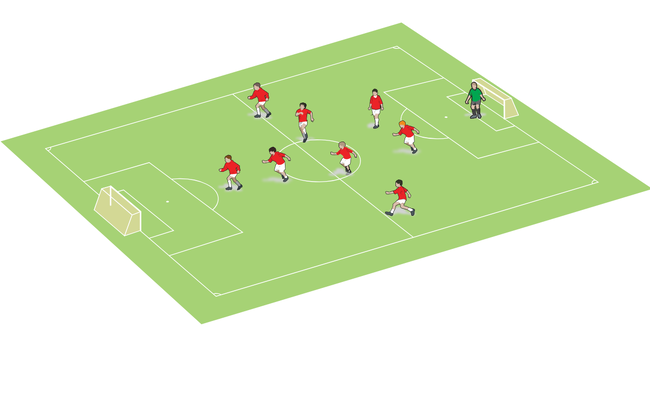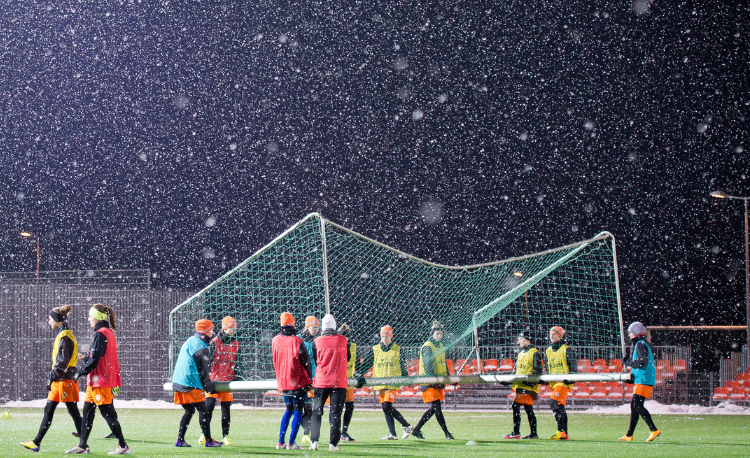Coaching is suffering technical problems
Coaching Adviceby Rob Atkin
Give youngsters the time and space to learn the core techniques and give grassroots coaches the tools to teach them, urges coach educator ROB ATKIN
Technique is everything.
That statement has been brought up and discussed many times on my coaching journey over the past 30 years.
Growing up, my generation would spend hours every day playing football and trying to emulate our heroes of the day by copying how they performed, whether that be the dribbling, passing or shooting traits in their armoury.
Of course, we had very few distractions like computer games, so developing a love of practice was easier. We just needed a ball and a few mates, or sometimes just a ball and a wall, to hone our individual techniques over many hours.
That statement has been brought up and discussed many times on my coaching journey over the past 30 years.
Growing up, my generation would spend hours every day playing football and trying to emulate our heroes of the day by copying how they performed, whether that be the dribbling, passing or shooting traits in their armoury.
Of course, we had very few distractions like computer games, so developing a love of practice was easier. We just needed a ball and a few mates, or sometimes just a ball and a wall, to hone our individual techniques over many hours.

Stefan Lainer showed remarkable ability to steer home Austria's opener in their 3-1 win over North Macedonia
Fast forward to gaining my UEFA A Licence and becoming a Football Association coach educator, delivering FA preliminary awards, then FA Level 2 certificates and UEFA B courses.
All of these instructional programmes involved a big part of individual technical work, to ensure the candidates became competent in the delivery of the technical aspects of running with the ball, passing and receiving, turning, dribbling, shooting, heading and so on.
To be deemed competent as a coach, and pass the course, one of your coaching topics would be a technique - such as “coach the technique of the Cruyff turn” or “the scissors dribbling move”.
The technical elements would need to be broken down into parts such as "turn in slowly, bend your knees, disguise, accelerate away quickly”.
Once your students could perform the various techniques, carrying them out under pressure in a game situation would be the next challenge.
Watching the Euros this week, the technical proficiency of these performers borders on perfection - the quality of the goals scored by Stefan Lainer for Austria against North Macedonia, Patrik Schick for the Czech Republic against Scotland and Andriy Yarmolenko for Ukraine against the Netherlands particularly stood out.
I have no doubt all the players at this rarefied level will have put in the hours of purposeful practice required to be able to perform those skills under immense pressure, in the defining moments that win games.
“Creating the positive learning environment is key to producing skilful players..."
As an FA coach mentor over the past seven years, my role has involved supporting grassroots coaches, most of them FA Level 1 qualified - a course that has no individual technical aspect on the syllabus.
Combine that with the stampede of putting children as young as six into teams that may train one hour per week, then where and when will these young players practice the basic techniques required to perform the skills within their 5v5, 7v7 and 9v9 games? Also, the only discussion following the weekly fixtures is normally the score, not the individual creativity needed to help young players reach their potential.
The challenge going forward has to involve factoring in the individual technical work required to give our future generations the tools to enjoy their football to the full - and have something to practice with confidence to compliment the physical, social and psychological corners we all work so hard to include within our coaching philosophy, without the pressure of outcome over development.
Creating the positive learning environment Is key if we are to continue to produce skilful, creative players over the coming years.
Related Files
Vol 2 Issue 006 - R-Atkin - Coaching is suffering technical problems.pdfPDF, 731 KB
Newsletter Sign Up
Coaches Testimonials

Gerald Kearney, Downtown Las Vegas Soccer Club

Paul Butler, Florida, USA

Rick Shields, Springboro, USA

Tony Green, Pierrefonds Titans, Quebec, Canada
Subscribe Today
Discover the simple way to become a more effective, more successful soccer coach
In a recent survey 89% of subscribers said Soccer Coach Weekly makes them more confident, 91% said Soccer Coach Weekly makes them a more effective coach and 93% said Soccer Coach Weekly makes them more inspired.
*includes 3 coaching manuals
Get Weekly Inspiration
All the latest techniques and approaches
Soccer Coach Weekly offers proven and easy to use soccer drills, coaching sessions, practice plans, small-sided games, warm-ups, training tips and advice.
We've been at the cutting edge of soccer coaching since we launched in 2007, creating resources for the grassroots youth coach, following best practice from around the world and insights from the professional game.

